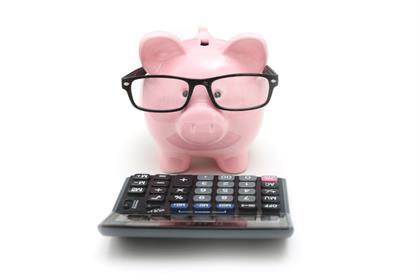
Ringing in a new year can be exciting for many families, but with rising costs for most Americans, 2023 will likely be the focus of saving money and budgeting. If you’re overwhelmed by budgeting, you’re not alone. We’ve compiled some of the best ways to save money and budget throughout 2023. We will explore two necessary parts: saving money and how to best budget your paycheck.
Best Ways to Save Money
You may feel overwhelmed with where to start saving money. We’ll break down our top seven tips for helping you save money going into 2023.
-
Review Recurring Charges – If you have recurring charges on your credit cards, review these immediately. People can often save money by canceling unnecessary subscriptions or memberships that renew automatically but don’t use.
-
Dining Out – While dining out is convenient and fun, the costs can quickly add up. Create meal plans and focus on eating more at home, and if you want to go out to celebrate a special occasion, research local restaurant deals.
-
Wait Before Buying – One of the best ways to save money is to avoid being impulsive about nonessential purchases. Take your time and wait several days, or even a month, to see if you need the item or are better off developing a savings plan for making a purchase.
-
Free Activities – Search for fun, free activities or low-cost entertainment. Community events are a great source of fun activities.
-
Automate Savings – Make saving money automatic. If you have direct deposit, ensure that a portion automatically goes directly into a savings account. If you get paid biweekly, and it’s a month where you have an extra paycheck, the best ways to save money is to put the entirety of these two additional annual checks into savings.
-
Utility Savings – You may think saving money on your utility bill is hopeless, but did you know that lowering your water heater thermostat by 10 degrees Fahrenheit can save between three to five percent on your energy bill?
-
Packing Lunches – If you’re back in the office again, a great tip is to pack your lunch. The average purchased lunch costs around $7.00, but did you know that packing a lunch costs only around $2? Over a year, you could save a whopping $1,250!
How to Budget Money
Let’s say you take home or net $2,000 a month. That’s not a lot, so let’s see how to best budget your funds to pay for housing, insurance, food, healthcare and debt repayment.
A budget gives you a plan for every dollar you spend, but often it’s hard for people to set up a budget and know where to spend their money.
The best ways to save money and budget are to explore the 50/30/20 rule, which budgets 50 percent of your take-home funds for mandatory expenses (AKA "needs"), 30 percent for discretionary expenses (AKA "wants") and 20 percent for savings and debt repayment. Check out this easy-to-use calculator that helps you budget using this method.
What Are Mandatory Expenses?
Mandatory expenses should take up 50 percent of your take-home pay. But what are mandatory expenses? Typically these include:
-
Rent or mortgage payments
-
Utilities
-
Transportation costs
-
Healthcare
-
Child care costs
-
Groceries
What Are Discretionary Expenses?
Discretionary expenses are often referred to as “wants,” and these should only take up 30 percent of your income. These include:
-
Shopping
-
Entertainment
-
Dining out
-
Travel and vacations
Savings and Debt Repayment
Your budget’s savings and debt repayment portion should comprise 20 percent of your funds, which goes towards:
-
Growing retirement accounts
-
Paying student loans
-
Paying credit card debt
-
Building a necessary emergency fund or nest egg
Practicing these helpful tips and developing a budget are the two best ways to save money going into 2023.
